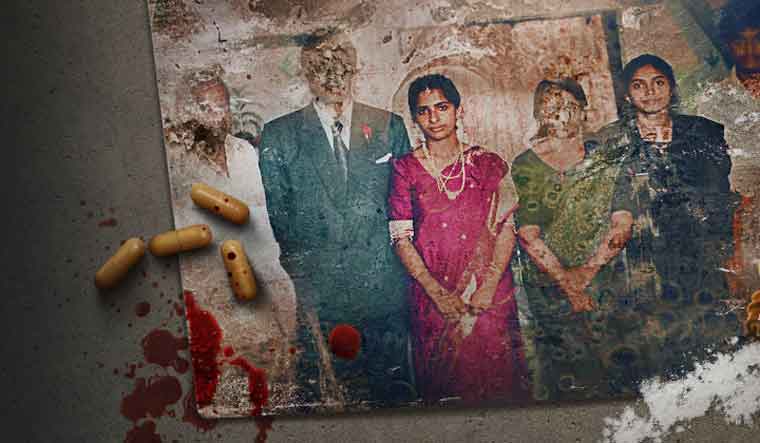The name Jolly would be familiar to almost every Keralite now. The 51-year-old woman allegedly killed six of her family members, including a two-year-old. Netflix's Curry and Cyanide - The Jolly Joseph Case documentary looks at these serial killings that shook the conscience of a state, and beyond.
The woman allegedly used cyanide for the killings in Koodathayi, which took place between 2002 and 2016. But the probe started only in 2019 when the siblings of her first husband Roy filed a case. The documentary takes an elaborate look at the timeline and events that took place, through the testimonies of people associated with the case.
Curry and Cyanide - The Jolly Joseph Case is set in a narrative format. It spells out the possible reasons for the murders through the testimonies of C.S. Chandrika, a gender expert, Dr V.V. Pillai, a toxicologist at Amrita Institute of Medical Sciences, and Dr Meghna Srivastav, who is a criminal and legal psychology expert.
The true-crime documentary is unbiased as it shows the testimonials of not just those against Jolly but also of her lawyer B.A. Aloor. While the story is mainly narrated by Ranji, Jolly’s sister-in-law, and the case officer in-charge K.G. Simon, it also portrays Jolly’s side of the story through her advocate.
While it has been widely reported that it was Jolly’s brother-in-law Rojo who suspected Jolly and filed the case, this documentary portrays Ranji as the brain behind it and that she asked her brother Rojo to file the case.
The documentary, directed by the National Award winner Christo Tomy, deserves a special mention for direction and editing as it seamlessly blends the original clippings with actual photographs and the documentary shots to create a crime thriller. The music, too, complements the narrative well.
At one hour and 35 minutes, the duration is on the shorter side. The ending seems abrupt, and certain portions or events feel rushed, leaving the viewer dissatisfied.
For true-crime documentary lovers, it's an interesting one-time watch.



